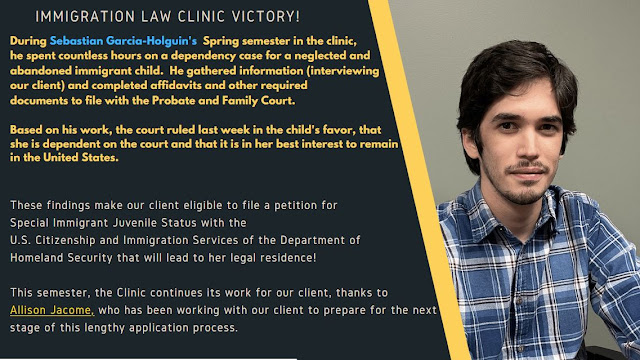⚠ Warning: indecent language.
Latino detainees of the Bristol County House of Corrections, which is located just three-quarters of a mile from the University of Massachusetts Law School, sued the county sheriff and Immigration and Customs Enforcement, alleging serious physical abuses.
Filed in April, the complaint, stating Bivens and § 1983 claims for excessive force, is available from the federal district court docket at Court Listener. The factual allegations detail incidents of violence and some not so flattering quotations of officers, such as: "Shut the fuck up. You bitches are a bunch of immigrants without papers. You have no rights."
 |
| Sheriff Hodgson shakes hands with former President Trump at a White House event recognizing sheriffs in 2019. (Official White House photo by Joyce N. Boghosian via Flickr.) |
A 2020 report by the office of Attorney General Maura Healey determined that authorities employed excessive force in violation of the civil rights of federal immigration detainees (press release). New Bedford, Mass., tort lawyer Betty I. Ussach has written letters to local media complaining of the high cost of defending Hodgson's style of criminal justice (EastBayRI, Dartmouth Week Today).
But in past years, Hodgson's name recognition has seemed to work a no-publicity-is-bad-publicity magic in his reelection bids. Hodgson faces a slate of challengers this year.
I wonder whether the geographic juxtaposition of the Bristol prison and the Immigration Clinic at the state's only public law school is not telling of state conflict-of-interest policy, which would complicate if not prohibit clinic litigation against state and local actors.
Clinic director Professor Emerita Irene Scharf retired just one one month ago. She exited amid some turbulence over how and even whether the law school would take responsibility for existing clients. It remains to be seen what the clinic will look like under new management. Scharf and sociology and anthropology Professor Lisa Maya Knauer have labored diligently for decades on behalf of the immigrant Latino community in south coast Massachusetts. But university personnel at Dartmouth, Mass., far from the aegis of the "flagship campus" at Amherst, must tread lightly in politically sensitive matters, lest they jeopardize the very existence of the system's less favored locations.
The present lawsuit, Morocho v. Bristol County Sheriff's Office (D. Mass. filed Apr. 29, 2022), was filed by Washington, D.C.-based NGO Rights Behind Bars and signed by its Boston-based litigation director, attorney Oren Nimni. Nimni is a graduate of Northeastern Law and an adjunct professor at Suffolk Law. So let the record reflect that monied Boston private law schools can make grief for public officials, too.










